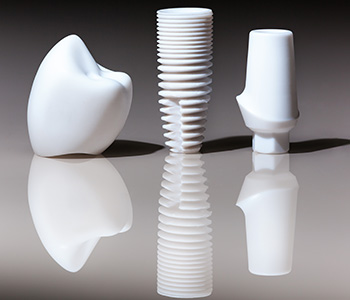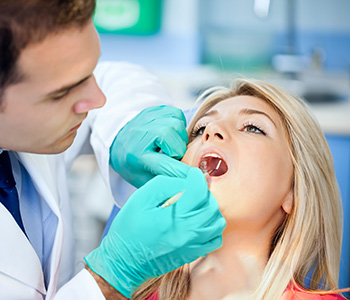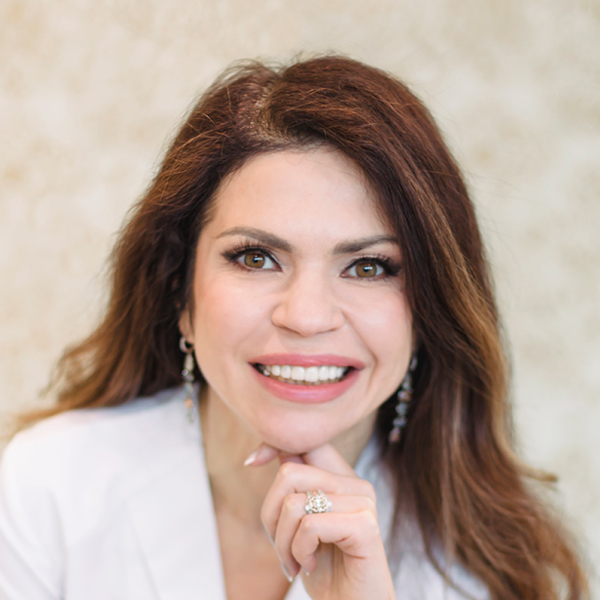

29
Oct
Glen Allen, VA biological dentist explains benefits of non-metal dental implants

Archeologists have unearthed early evidence of mankind’s attempts to replace missing teeth with implants, dating back to 2000 BC. “Modern” dental implants made of titanium metal alloy have been used in this country since the early 1980s. Today, Dr. Oliva Hart brings the beauty and biocompatibility of contemporary non-metal dental implants to patients in the Glen Allen, VA area.
Implant basics
An implant is the dental solution to replicating lost tooth structure in the most natural way possible. The implant is a threaded, conical device that resides in jawbone. A small incision is made in gum tissue, and space is created in bone, where the implant is placed.
In some cases, especially when teeth have been missing for a while, bone mass diminishes. There is insufficient support for a dental implant, or (for the upper arch) an implant could compromise the maxillary sinus. Fortunately, most people can still be good candidates for dental implants, with advanced bone grafting techniques. A small amount of healthy bone taken from a donor site on your own body, a biological resource, or a biosynthetic material is placed at the implant site to supplement existing bone.
Platelet rich fibrin can be beneficial in implant success, as well. A membrane, packed with natural growth factors derived from a small sample of your own blood, is placed at the site of an extraction or bone graft. PRF accelerates natural healing and regeneration processes. Since PRF is autologous, there is no risk of allergy or rejection.
With precise, computer-guided planning, placement of the implant is completed in a brief, minimally traumatic oral surgery. Soft tissues generally heal within a few days. In the course of several months, bone coalesces with the implant in a process called osseointegration. This becomes the root of your new tooth, forming a solid foundation for the ceramic crown restoration.
A successful dental implant feels like your own teeth and contributes to full oral function. It works to preserve bone as it restores your smile.
Is ceramic better?

The choice between metal and metal-free dental work is a very personal one, influenced by your health, physiology, aesthetic concerns, and overall philosophy or biological approach to your own health. As a biological dentist, Dr. Hart strives to deliver dental treatment with long-lasting aesthetic results that does not impair any aspect of health or wellness. That entails using the safest available materials and techniques.
Fewer people have allergy to titanium than some other metals (like nickel, cobalt, or chromates). However, most traditional dental implants are not made of pure titanium. To keep costs down, manufacturers fabricate implants from alloys containing other metals. As metal corrodes, ions bind to proteins in the body. This might trigger a cascade of health problems that extends far beyond your mouth.
Dr. Hart recommends zirconia dental implants. Zirconia is a ceramic material, super-hardened with high heat which also vaporizes impurities. Allergy to dental porcelain is incredibly rare because the material is bioinert. It does not initiate a response from the immune system.
Because the entire implant, from tip to crown, is tooth-colored, a zirconia implant provides the most natural looking restoration. Gums will not have a gray cast if tissue is thin. Even if gums recede, you will not develop a dark line at the margin.
Dr. Hart’s success rate with zirconia implants is very good, due in large part to her expertise in the technique. In addition, non-metal implants promote oral health. Gums tend to maintain a tight seal, due to bioinert properties. The implant and abutment are fabricated in a single unit. This one-piece design reduces risk of bacterial population at the margin, which can compromise gum health and cause bad breath.
Caring for non-metal dental implants: Glen Allen, VA hygiene team shares tips
At Virginia Biological Dentistry, you receive thorough post-procedure instructions for uneventful recovery and implant success.
REQUEST AN APPOINTMENT
Once the implant restoration is completed, it can last for a lifetime with good oral habits. Hygiene is essential. Brush teeth in the morning and before going to bed, using a soft brush and nonabrasive paste or powder. It is also a good idea to brush about 30 minutes after eating, through the day. When you brush, think about cleaning all sides of each individual tooth, with a little extra where your crown meets gum tissue. Floss at bedtime. Your hygienist is happy to provide hands-on instruction.
Dr. Hart may also recommend using a water flosser (oral irrigation system), interproximal brushes, or alcohol-free anti-bacterial mouth rinse to keep the oral ecosystem balanced.
Would you like to learn more about non-metal dental implants? Call (804) 381-6238 to schedule a consultation with Dr. Hart in Glen Allen, VA.










